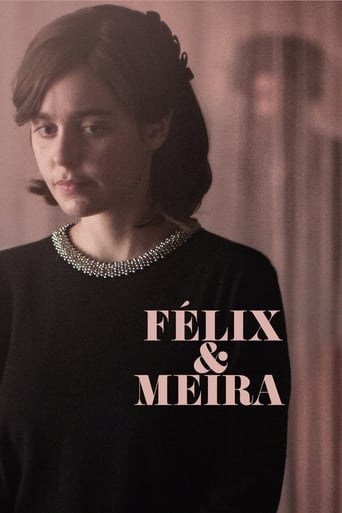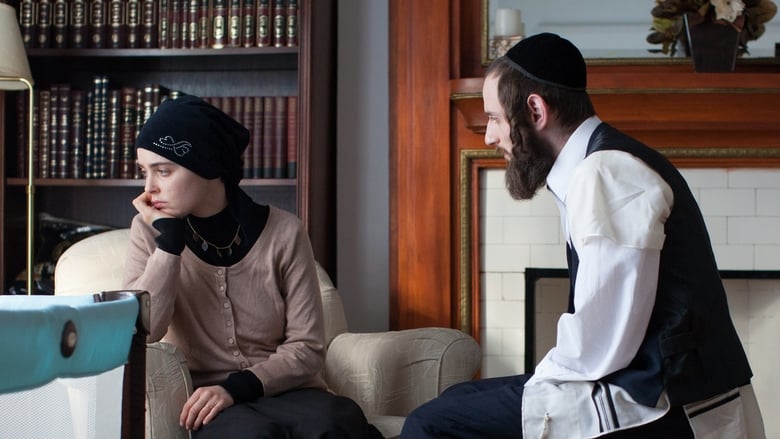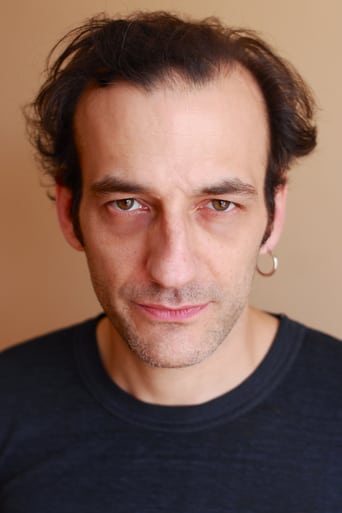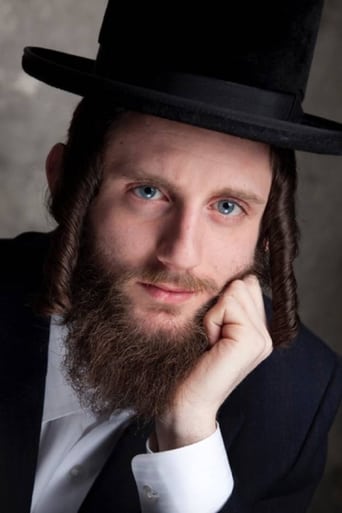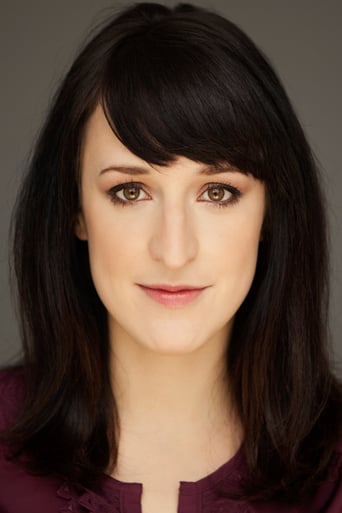A young married woman from Montreal's Orthodox Jewish community finds freedom from the strictures of her faith through her relationship with a young man who is mourning the death of his estranged father.


Reviews
In the opening scene of "Félix & Meira," it is clear that the character Meira is just waiting for her moment of liberation from her repressed life in a Hasidic Jewish community in Quebec. One of the most famous plays of the 19th century is Ibsen's "A Doll's House," in which the character Nora Helmer similarly braces herself for the opportune moment to walk out on her stultifying home life.But a major difference between Ibsen's writing and that of this film is in the ability for the audience to see the development of the protagonist, the evolution of her courage, and her moment-to-moment thought process in her life-changing decision. A shortcoming of "Félix & Meira" is the static nature of the film, even when the character makes the courageous decision to walk out on her husband and her community.Similarly, the enigmatic Félix is also underdeveloped as a character. There is a startling moment when the rabbi husband of Meira reads a letter left to Félix by his recently deceased father. The father offers a heartfelt apology for the way he treated his son and adversely impacted his life. Yet it is never made clear in the film whether the letter has had even the slightest impact on Félix.Much of the plotting of the film was clumsy with sudden changes from Quebec to Brookyn, where Félix adopts a truly bizarre disguise, and, later, to Venice, where Félix, Meira, and her child suddenly show up. Again, there was no arc of development of the characters. This is most apparent in a stunning moment when Félix touches Meira's hair, only to discover that it is wig. Yet Meira continues to wear the wig to the very end of the film.It was easy to see why Meira would want to sever ties with her husband. At one point, she confesses to a friend that she is reluctant to bear "6, 10, or 14" children, as required by custom. The friend immediately reports the conversation to the husband, betraying Meira and making her life even more claustrophobic. In one of her early meetings with Félix, Meira confesses that "I'd like to know what it's like to be single." It is unfortunate that she never comes close to experiencing her wish.
Maxime Giroux's 'Felix and Meira' tone is set from the very first frame, captured in black and white. Malka or Meira plays with her soup with a soup spoon, a Shabbos meal. Her husband with finely curled ear locks, wearing a black hat trimmed in sable, and wearing a long black silk coat celebrates the Sabbath with gusto, in song and food and the pouring of wine. Meira feels estranged from this world of ultra Orthodox Jews, living in Montreal. A community that keeps very much to itself; insulated religiously in a world of Yiddish and Hebrew, prayers and rituals. A world in which husband and wife sleep in separate beds, according to tradition; coitus takes place only during days of ovulation; menstruation renders her impure, a ritual bath cleanses her. Malka wears a wig, long garments, She has but one duty to bear her husband many children. She doesn't; after the birth of her daughter she takes up pen and notebook to draw; she has a certain talent. She likes music which her husband forbids. She's listless and wanders aimlessly in her mind. In secret, she takes birth control tablets, for she doesn't want more children. And into her universe comes a secular man, an artist of sorts, a lost soul who feels empty because a strict father has never shown him love or interest since he didn't follow in the man's footsteps, it's inferred. So Felix travels and is now back in his own flat in Montreal, perhaps in Westmount, a Jewish enclave of Anglophone Jews. And as the narrative develops these two souls collide and a desperate, quite love arises between them. Too, late Meira's husband declares his love for her, but she is beyond his pleas for she has left an tradition from which she cut herself off and can never return. (Woody Allen treats the theme but without tragedy in 'Fading Gigolo', and Boaz Yakin treated seriously in the 1998 film 'A Price Above Rubies', with more or less the same outcome as Giroux's film.) The closing scenes are shot in Venice, on a grey day. A in an aside, Meira wishes regrets she has taken her daughter out of structured community, for life with her and Felix. Felix stolidly stares into the mournful cast of Venetian light. The pairing will never be happy, but, it is suggested, that in desperation they will cling to each other.
This film is about the explicit values of two adjacent cultures who live on different sides of a railroad, each reaching for something more the unknown. For Felix and Meira, the unknown becomes uncertainty. Life and lifestyles are disrupted, communities clash, and traditions unsaddled. This isn't a story of skinheads, hippies, Trekkies, or of Generations X, Y, or Zeds. It is of a girl called Meira and French Felix, each who adopt their known cultural traits. Her identity is repressed, arrested by secret Hasidic customs and protocol where women are quieted and obedient. Apparently of the Satmar tribe, women wear wigs and are in arranged marriages. Felix flits in and out of his family, daring to explore the matrix of love. Meira too openly resists the known in favour of love, romantic love. However, romantic love is not reality. Viewers experience subconscious moments acknowledging resistance to our ostensibly defined lives. Each of us wanting to explore outside known cultural norms. Some may call it slow moving, I call it pace. We aren't rushed through every scene, but given permission to decode the mysteries of the Hasidim. What is uncovered, I cannot tell. What is revealed, is how the unknown can be even more uncertain than what we know.
I was completely blown away by this unique film. It is a gentle, nuanced look at two people from very different communities who connect and fall in love. The young woman is from the Hassidic community in Montreal. She is questioning her life and the limitations imposed on her by her community. The man she meets is not from her community and at a crossroads in his life. While this premise might seem implausible, it is explored with subtlety and respect. I cannot forget to praise the terrific performances of the three main actors. Israeli actress Hadas Yaron is simply amazing as Meria, the young Hassidic woman who is stifling in her marriage and community. Martin Dubreuil is also very good as Felix who is in search of something but is not quite sure what. All he knows is that he is instantly attracted to the shy, reluctant young woman and he must try to connect with her in any way he can. The chemistry between the two is simply electric. The character of Meira's husband could have easily been portrayed as the clichéd overbearing, uncaring spouse. Instead, actor Luzer Twersky makes him a sympathetic character trapped by his own failings. He simply does not know how to deal with his wife's angst. There are some incredible moments of tenderness in this film (The first time Felix and Meira hold hands is understated but very powerful). Overall this is a beautiful layered love story that is full of hope and happiness. Love will always find a way. Not to be missed. Bravo Maxime Giroux for giving us such a beautiful film.
